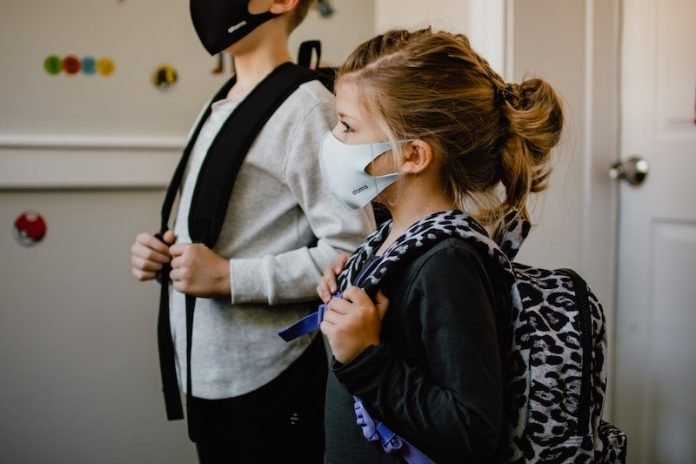
Scientists from the University at Albany found that children spread COVID-19 easier and that lockdowns worked.
They found young people were most responsible for an increase in direct and secondary infections, and that county-wide lockdown proved effective in stemming the spread of the virus.
The research is published in the Journal of Urban Health and was conducted by Zai Liang et al.
In the study, the team was given rare access to patient profiles and contact tracing data from every case accompanying the outbreak of the virus in Shijiazhuang from January to February in 2021.
They looked at such sociodemographic factors as age, gender, and socioeconomic status.
They found children interacting in the classroom, females having more contact with their relatives than do males, and less affluent workers working or living in overcrowded settings all contribute to spreading of COVID-19.
Children aged 0-17 years had fewer close contacts than adults, but these led to more secondary infections—32.1 percent infected children, and 67.9 percent adults.
Close contacts of children were 81 percent more likely to be infected than the contacts of those 18-49.
Peasant workers, compared to non-manual workers, had 40 percent more secondary cases from the same neighborhoods.
The team says while children have a low probability of having severe symptoms after being infected by COVID-19, they can seed the spread in the larger society by infecting their household members and other adults living in their neighborhoods.
These adults can then transmit the disease to their own social contact. Future studies on how to control within-school infections are therefore urgently needed.
Another major conclusion of the study is that timely interventions, including restrictions on gatherings and school closures, effectively contained further infections via contact reduction, especially when implemented in small areas with the highest caseloads.
If you care about COVID, please read studies that new inhaled vaccine delivers broad protection against COVID-19, and herb rosemary could help fight COVID-19, Alzheimer’s disease.
For more information about COVID, please see recent studies about the key to stopping indoor COVID virus spread, and results showing vitamin D3 could help people fight COVID-19, infections.
Copyright © 2022 Knowridge Science Report. All rights reserved.



